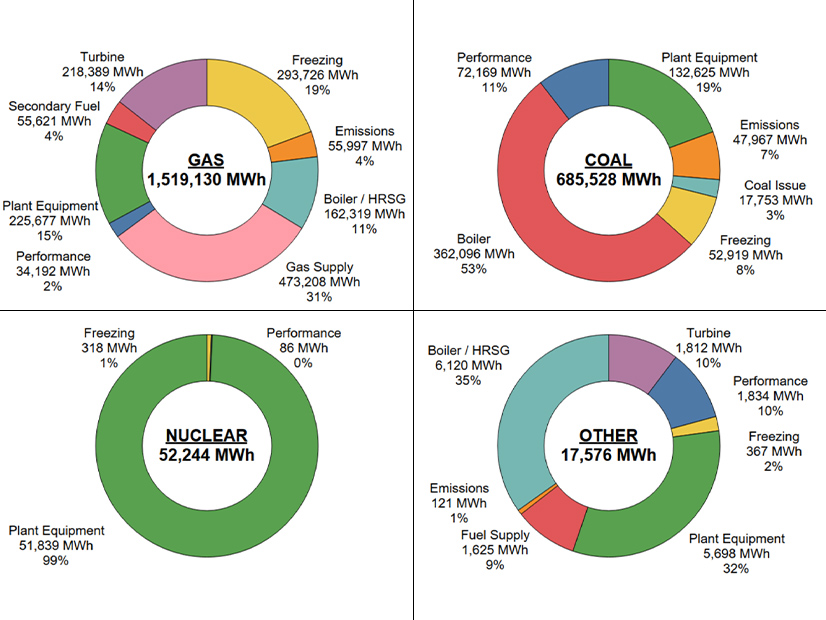
FERC on Monday authorized settlement judge procedures to resolve about a dozen complaints that generators filed against PJM’s assessment of penalties for underperformance during the December 2022 winter storm, also known as Elliott (EL23-53, et al.).
“Given PJM’s interest in finding a resolution to the issues raised in these proceedings — along with parties’ general collective willingness to engage in settlement procedures — we find that these procedures are a reasonable first step,” FERC said. “The commission has previously found that providing parties the opportunity to enter into a mutually acceptable settlement of highly contested and complex issues is superior to years of ongoing litigation which, as PJM notes, could be disruptive to the market.”
PJM requested settlement judge procedures in April, maintaining that it had properly followed its emergency procedures and that all penalties were valid. But the RTO also said there is value to seeking rapid resolution rather than engaging in years of litigation that could negatively impact market participants beyond the penalties themselves. (See PJM Seeks Settlement over Elliott Nonperformance Penalties.)
“The capacity market also is designed in large measure to signal the need for new capacity resource investment, and the expectations of the financial and investment community accordingly are an important backdrop to the operation of this market,” PJM said. “Timely, consensual resolution of these disputes thus could, potentially, help support the long-term health of the resource adequacy construct in the PJM region.”
By folding the protests under a global proceeding, PJM argued that it could promote consistency in settlement outcomes, if possible.
The RTO applauded the order Tuesday as providing a possible pathway for resolving the complaints.
“PJM appreciates the commission’s order establishing global settlement judge procedures to pursue a potential resolution of disputed nonperformance charges and the related complaints arising from Winter Storm Elliott,” PJM said.
Separately in May, PJM urged the commission to reject the complaints, arguing that its Capacity Performance rules were clear and that the RTO followed its tariff. (See PJM Urges FERC to Deny Winter Storm Complaints.)
FERC left the scope of the settlement proceedings open to all issues that have been raised in the complaints, which include arguments that PJM was not permitted to fulfill non-firm exports during performance assessment intervals, generators not dispatched or scheduled were penalized, and PJM’s forecast was incorrect and played a role in the cause of the emergency.
The order provides 10 days for the chief judge to appoint a settlement judge for the proceeding, with parties able to submit recommendations in that time. If the settlement judge reports that progress is not being made toward an agreement after 60 days, the chief judge may refer the complaints back to FERC; if a resolution appears possible, an extension of up to 30 days could be granted.
Constellation and Vistra had both filed protests to PJM’s request for the proceedings, arguing that the RTO’s filing was “premature and incomplete” and that each complaint should be decided on its own merits. If the commission granted PJM’s request, Vistra pushed for it to require that all interested parties be able to participate; specify that bonus payments remain due to generators that exceeded their obligations; and establish a legal framework regarding the filed-rate doctrine, PJM’s scheduling decisions, and the proper interpretations of PJM’s tariff and manuals.
“PJM’s motion for settlement judge procedures seeks to move resolution of the complaints in these proceedings behind closed doors and facilitate an opaque result that would most likely weaken the existing Capacity Performance framework. As noted, Vistra believes the best path forward is one that avoids settlement judge procedures altogether by the commission ruling on the merits of each complaint,” Vistra wrote.



